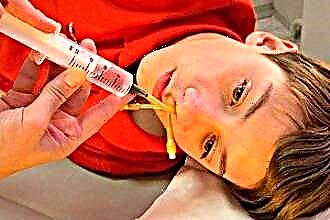Does Aspirin Help With Hangover Syndrome?
Effects of the drug
The active ingredient in Aspirin is acetylsalicylic acid (ASA), which belongs to the class of non-steroidal anti-inflammatory drugs (NSAIDs), namely non-selective inhibitors of cyclooxygenase (COX).
Actions of ASA when taken orally:
- Analgesic;
- Anti-inflammatory;
- Antipyretic;
- Antiaggregatory.
Aspirin limits hyperemia, exudation, capillary permeability, hyaluronidase activity and prostaglandin biosynthesis (the main components of the inflammatory process). Additionally, the drug reduces the supply of energy to the focus of inflammation, inhibiting the synthesis of ATP.
To maintain microcirculation, Aspirin increases the fibrinolytic activity of plasma and lowers the concentration of vitamin-dependent factors of the blood coagulation system (II, VII, IX, X).
The analgesic effect (elimination of pain) is due to the influence of ASA on the centers of nociceptive sensitivity and inhibition of the synthesis of bradykinin (a pain mediator).
The use of Aspirin is indicated in patients for:
- symptomatic treatment of pain syndrome of various origins;
- relief of fever with acute respiratory infections;
- in low doses for cardiac pathology in order to reduce the adhesiveness of platelets and the formation of blood clots.
Chemical hangover
The main substrate for all alcoholic beverages is ethyl alcohol.
After oral administration, it is rapidly adsorbed from the oral mucosa (20% is absorbed in the stomach, 80% in the small intestine) and after 5 minutes its traces are found in the blood plasma.
The degree of absorption depends on the strength of the drink; the lower, the better and faster the adsorption of alcohol into the bloodstream occurs (alcohol with a strength of 35-400 causes a local tanning effect and vasoconstriction, which prevents its lightning-fast penetration into the plasma).
The main effect of ethyl alcohol is to inhibit the activity of the central nervous system (similar to anesthetic agents) by activating the reticular formation of the trunk. Ethanol has a pronounced organotropy (a tendency to accumulate and affect certain tissues and organs) - the brain, liver, heart, lungs, testicles. Also, alcohol reduces the concentration of serotonin, dopamine (coordinator of movements, emotions and psychological state)
The main organ of the biotransformation of alcohol is the liver and, to a small extent, the epithelium of the gastrointestinal tract. Ethanol metabolism is carried out by oxidizing it to acetaldehyde and excreting it from the body.
Methods for converting ethanol to acetaldehyde:
- The system of alcohol dehydrogenase in hepatocytes (in healthy people, about 75% of alcohol is thus rendered harmless). The level of activity and concentration of this enzyme is at the genetic level.
- Microsomal ethanol-oxidative system (MEOS), consisting of cytochrome P-450 in the liver. This pathway is active in people already abusing alcohol.
- Catalase pathway that transforms 10-15% alcohol.
The end product of the first phase of ethanol alcohol oxidation is acetaldehyde, which acts on the body and serves as a substrate for the development of unpleasant hangover symptoms. The amount of this breakdown product is directly proportional to the volume of alcohol consumed.
Aldehyde tends to form covalent complexes with proteins of membrane structures of brain neurons and hepatocytes, which causes metabolic damage to these organs.
Acetaldehyde significantly slows down the processes of tissue respiration, leads to the accumulation of under-oxidized products and a violation of the accumulation of ATP in the reactions of oxidative phosphorylation, which is the main mechanism of the toxic effect of alcohol on the body and the further development of a hangover. It promotes the release of catecholamines from the depot, the accumulation of NADH and NADPH, which disrupt the normal exchange of norepinephrine, dopamine, serotonin, which leads to the activation of the sympathoadrenal system (palpitations, tremors, chills, emotional lability). Interacting with the structural proteins of the blood corpuscles, vascular endothelium and other tissues, acetaldehyde disrupts their normal work (the formation of compounds with hemoglobin, which reduce its affinity for oxygen, impairment of coagulability, capillary toxicosis).
At the second stage of the neutralization of acetaldehyde by oxidation with aldehyde dehydrogenase, acetic acid is formed, which, with the help of further transformations, decomposes into carbon dioxide and water with the release of energy.
In addition, the accumulation of ammonia, ketone bodies in the blood, depletion of glycogen reserves in the liver, the development of metabolic acidosis and impaired lipid metabolism contribute to the occurrence of a hangover syndrome.
Due to the overload of enzymatic systems, there is a deficiency of vitamins (primarily E), selenium, zinc, magnesium.
Hence, hangover symptoms are due to:
- The accumulation of under-oxidized products in the body;
- Violation of the permeability of the blood-brain barrier;
- Hyperactivation of the sympathoadrenal nervous system;
- Deficiency of vitamins and minerals;
- Hypoglycemia, conditional nutritional deficiency;
- Dehydration, violation of water and electrolyte balance;
- Metabolic acidosis;
- A decrease in the number of neurotransmitters;
- Capillarotoxicosis.
Taking Aspirin during a hangover inhibits the inflammatory response in the microvasculature, which can eliminate headaches. It does not affect all other links in the pathogenesis of a hangover.
Should I take the medicine?
Aspirin has a number of contraindications and side effects.
The drug is prohibited for use in patients with:
- Hemorrhagic diathesis, thrombocytopenia;
- Erosive and ulcerative diseases of the gastrointestinal tract;
- History of gastric bleeding;
- G-6-FDG deficiency;
- Bronchial asthma and salicylate allergy.
The use of large doses of Aspirin has an ulcerogenic effect (provokes the formation of stomach ulcers and duodenal ulcers) due to its indiscriminate blocking of both COX pathways.
One of the consequences of alcohol intoxication is a blood clotting disorder, which can increase the risk of bleeding when taken together with acetylsalicylic acid.
It is also worth mentioning Analgin, which is often used arbitrarily during a hangover. The active ingredient in its composition is sodium metamizole, which has similar effects to ASA. It is strongly not recommended to use these drugs at the same time (the likelihood of adverse reactions or complications increases).
More modern treatment options
Successful hangover control requires an integrated approach, consisting of non-pharmacological agents and drug therapy.
On the modern pharmaceutical market in Russia, there are many combined hangover drugs that can affect several chains of pathogenesis at the same time:
- Alka-Seltzer. The composition includes:
- ASA (analgesic and anti-inflammatory effect);
- Sodium bicarbonate (normalizes the acid-base environment of the body, reduces the negative effects of Aspirin on the gastric mucosa);
- Citric acid (included in the Krebs cycle, promotes the speedy decomposition of acetaldehyde and other under-oxidized products).
- Alkaprim:
- Aspirin;
- Glycine (reduces the toxic effect of alcohol on the brain, improves psycho-emotional state).
Medichronal:
- Glucose (eliminates energy starvation of the brain, formed as a result of depletion of glycogen reserves in the liver);
- Glycine;
- Sodium formant (neutralizes acetaldehyde).
- Alcolin:
- Glutargin (promotes detoxification of the body, accelerates the breakdown of acetaldehyde).
It is also allowed to use combinations of ASA with paracetamol and caffeine (Askofen, Citramon, Excedrin).
Additionally, sorbents (Activated carbon, Enterosgel, Atoxil) should be taken to remove alcohol metabolism products.
Non-pharmacological measures that can improve well-being:
- Rehydration - drinking plenty of table mineral water;
- Sweet tea with lemon;
- Warm shower;
- Adequate sleep;
- A full breakfast (with a balanced ratio of proteins, fats and carbohydrates). Give preference to cooking, stewing, baking products.
- Perhaps the use of citrus juices or vitamin C;
- If possible, dosed physical activity, a walk in the fresh air.
Conclusions
The Aspirin pill does not save you from a hangover, since it can only help alleviate some of the symptoms. The systematic use of ASA leads to the development of ulcerative lesions of the gastrointestinal tract and bleeding. Excessive alcohol consumption causes irreparable harm to the body and shortens life expectancy. In this regard, it is recommended to avoid the use of doses that cause hangover syndrome.



